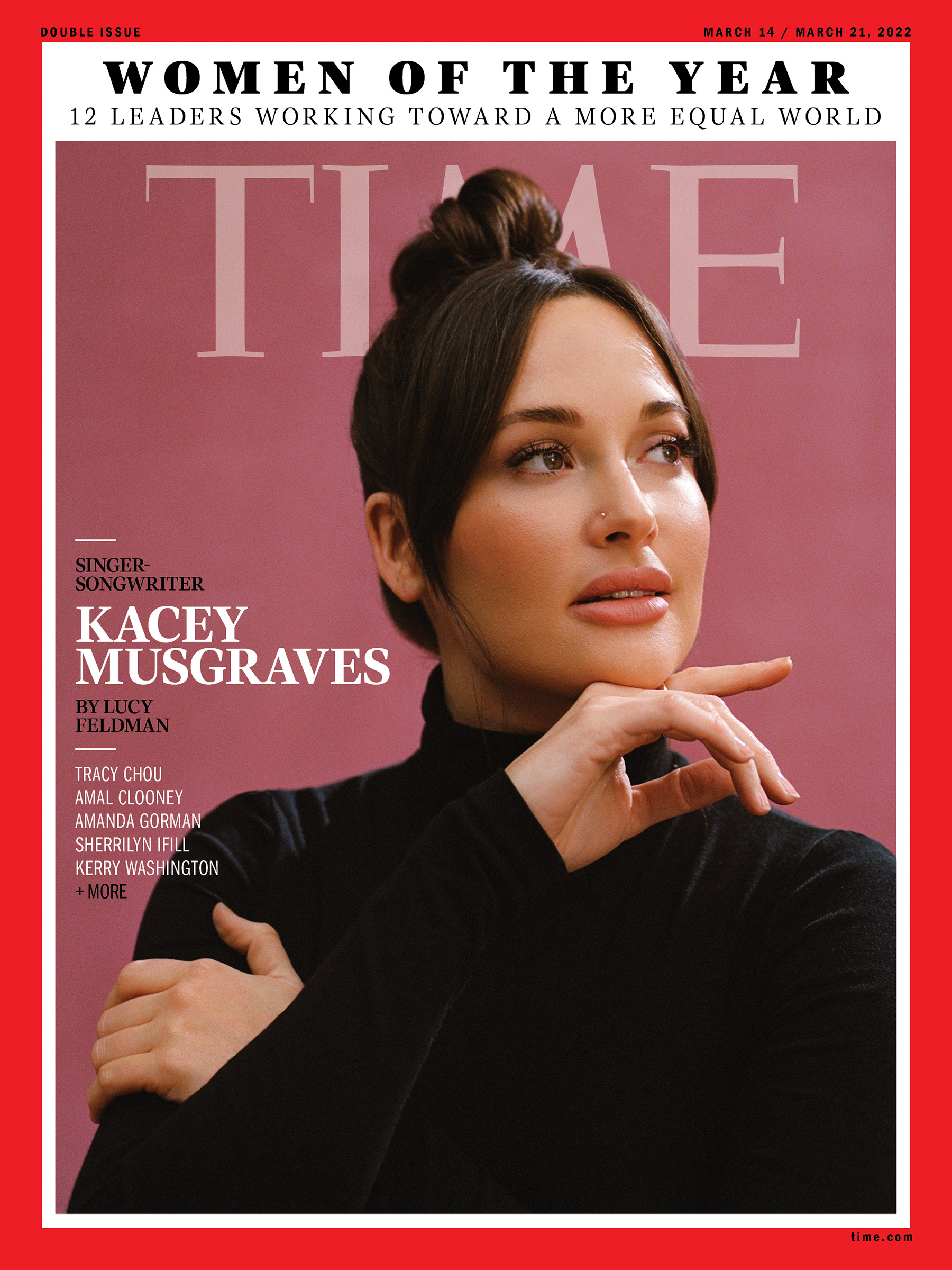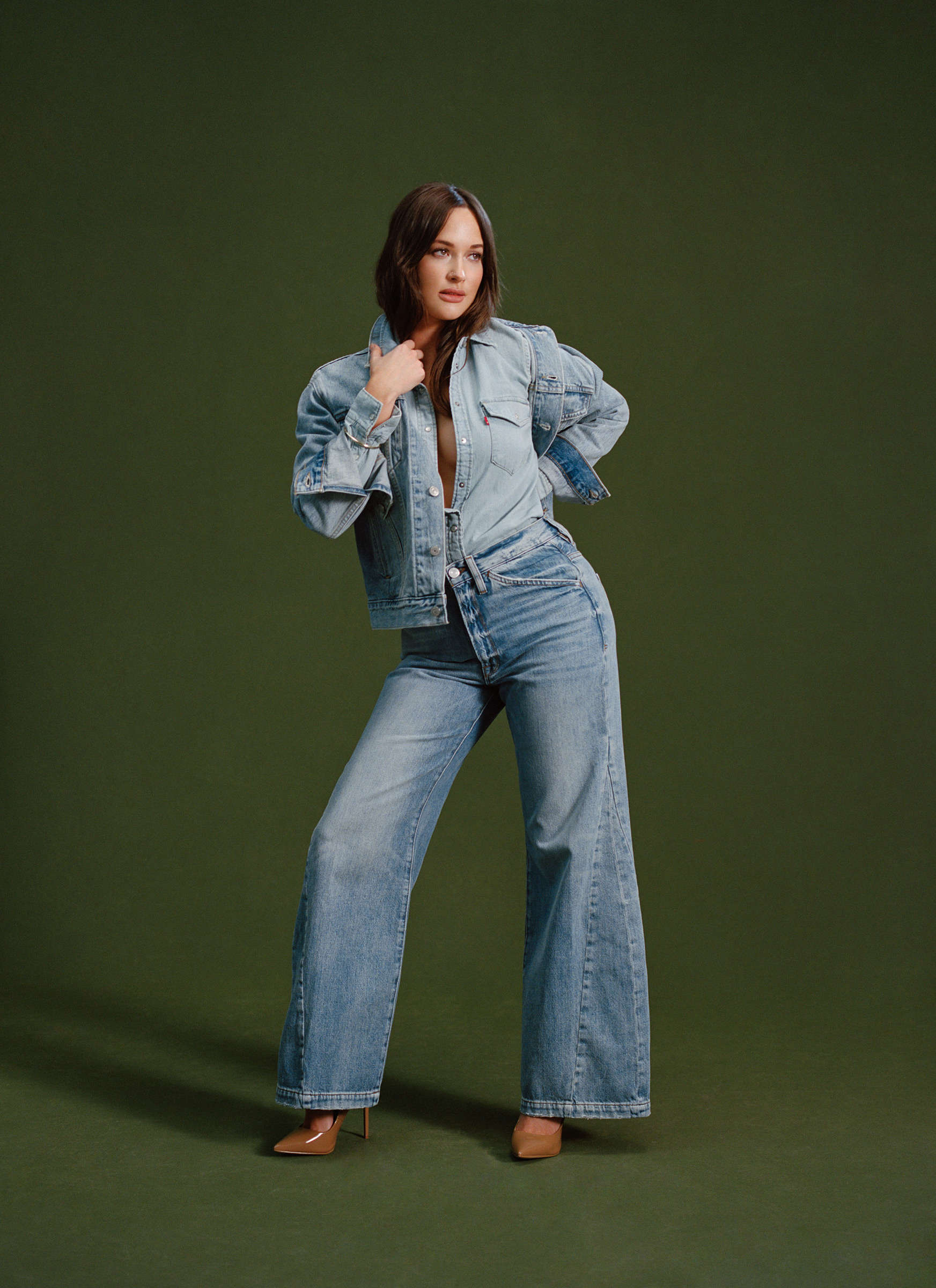Kacey Musgraves isn’t afraid to go there. She’ll say the thing you might be thinking but would never voice out loud: sometimes marriage means insecurity; it’s easier to get high than to talk through conflict; life would be better if we could go back to being kids.
The genre-blending artist, who grew up in Golden, Texas, and made her way to Nashville, has managed to carve her own path in an industry that rewards women for replicating the looks, sounds, and messages of existing stars. She launched her career in 2012 with the single “Merry Go ’Round,” about the oppressive expectations of small-town life. Two country albums and a Christmas record later, Musgraves reached new heights in 2018 with Golden Hour, her Grammy-winning smash album that told the story of falling in love with her then husband—only to go through a divorce and put out the Shakespeare-inspired heartbreak record Star-Crossed last fall.

As she wrapped up her tour, Musgraves, 33, spoke to TIME from her home in Nashville about navigating a male-dominated industry, her choice to share her personal life with the world, and the benefits of therapy.
TIME: Nashville and the music industry can be tough on young women. Can you tell me about a time when you were told no?
Kacey Musgraves: I have been told no a lot in terms of something that I would want to take a creative risk on. I decided I’d rather go down in flames for something I really believe in than present a watered-down version of myself that may make me more money. You have to fight that until you can get to a place where you can have total creative freedom, and I’m getting there.
I know you’re also used to being the only woman in the room.
When you look at festival lineups or wages compared to what some of the male artists make, you could point out flaws. I’ve been really lucky to have a lot of amazing male collaborators—Ian Fitchuk and Daniel Tashian, who I made Golden Hour and Star-Crossed with, are two of my closest confidants. Just like it’s about surrounding yourself with the right women, it’s about surrounding yourself with the right men too. Men who are comfortable tapping into their feminine energy, who aren’t scared of feminine power—those are the kind of men I want in my life.
I want to talk about “Breadwinner,” your song about being with a man who can’t tolerate your financial success. That’s not an easy topic to write about. How did you muster the courage?
I’m not the only one who’s experienced that, and I’m not going to be the last. It always makes it easier to put vulnerable thoughts out there when you know they’re going to be met with connection. As more women have moved into power, it’s been interesting to see the effects. It’s important for men to know there are so many things you can bring to the table other than money. If you’re with a woman who earns more than you, maybe look at what you can bring emotionally, mentally, or around the house. I feel really lucky to be with someone who is so secure and is a champion of me reaching for every star possible. It’s a really beautiful thing for a man to be able to support a woman in that way and not take it personally.
What is it like to share your new relationship after going through a public divorce?
I don’t really want to keep things private, because I’m proud of the love that I have. I’m very happy. It’s natural to want to share that. And I don’t want to come across like a robot—I think people like me because I share who I am. But you also have to remember that you are under a magnifying glass, and it can get picked apart.
I think that’s hard for everyone, public figure or not—the internet is ugly.
You’re going to hear from the trolls. I’d be lying if I said it didn’t affect me. People forget that there are real feelings there. But it also makes me feel sorry for people—I can’t imagine being so miserable that I have to spread that negativity. I would very much welcome anyone to say some of the things they have said online to my face. I guarantee they wouldn’t.
I appreciate that you can admit it gets to you. It helps to hear from successful women that sometimes things don’t feel good.
Are you kidding? If people only knew. Everyone presents their highlight reel to the world. When I come out onstage and you see me put together, I’ve had a team of people helping me. There’s the side of me that doesn’t feel confident about my body, that feels bloated and gross and doesn’t want to go on stage in these outfits. I have days where I’m analyzing every section of my body and not feeling good about it. I have other days where I’m like, “Damn, I look pretty good.” It’s just as up and down as anyone else, and anyone who says it’s not like that is lying.
You’re a big proponent of therapy. Were you able to take time for that while touring?
I check in over FaceTime with a therapist. I really love having that outlet. I find it to be helpful in getting rid of some energy with an objective opinion—everyone could benefit from that. Being on the road and having constant stimulation, it’s exciting. But then coming home, my house is completely silent, and it can be jarring to re-enter normal life. That part has never been easy for me. So I’m trying to spin it in my mind: I have all this open space for things that might feed the other part of me that isn’t the Kacey on stage. That’s what the rest of my 30s are going to be about.
You started performing when you were 9 years old. How did that early experience shape you, and are there things you’ve had to unlearn?
Figuring out where your boundaries are when it comes to what you have to give to others, that’s something I’m constantly learning. It was a really early age to be learning how to perform before you even knew a lot about yourself. Now I’m reflecting on what truly makes me happy about the whole process. For me, there is no greater high than when I leave a writing room with a new song I really love.
Your song “Camera Roll” is up for two Grammys this year, Best Country Song and Best Country Solo Performance. But Star-Crossed was deemed ineligible for Best Country Album. What value do awards like the Grammys hold for you?
Anytime you get recognized for your work, it’s a huge compliment. But being able to have those things has never shaped what I’m creating. Genres were necessary in a time where you would physically walk into a record store and need to browse shelves that were categorically separated. Now, mixing genres is encouraged. I can’t tell you what category any of my albums belong in because they’re a patchwork quilt of all the things I’m inspired by. Some of the best artists of all time create their own genres. What genre are the Beatles? I don’t know, it’s the Beatles—they do their own thing. It can be confusing because you could listen to any country radio station and say that a lot of things you’re hearing aren’t technically country either, so it’s worth a bigger conversation. But at the end of the day, if I made a record that makes me feel good, like I represented my truth and I was able to take creative risks, that’s all that matters. It’s bigger than a Grammy. Going into all these rooms and seeing how passionate people are about my songs—they don’t care if I ever win another Grammy. They’re there and singing just as loud either way.
If Golden Hour represented a romantic dusk time and Star-Crossed is the dead of night, do you feel like you’re now entering a morning phase?
Kind of, actually. What happens after a reawakening of self? Probably that. I have a couple notions of where it might go musically, but I haven’t had the time to completely explore that yet. I do feel like I have a more forward-facing, positive outlook right now than looking backward, reflecting and chewing on those emotions. I got that out, and I’ve gotten to see it come to fruition in such a beautiful way. It makes me feel like I can really move on.
May we all be so lucky to feel that sense of closure after going through a breakup or a loss.
I’ve done so much processing. At the end of the day, knowing that you did all you could gives you permission to move forward. Sometimes the universe just has other plans. I wouldn’t take it back. I’ve learned a lot from all the chapters I’ve experienced. And I do think it’s made me a better person, a better lover, a better friend, and even kinder to myself. I’m learning how to give myself a break.
This interview has been condensed and edited for clarity.
- The 100 Most Influential People of 2024
- Coco Gauff Is Playing for Herself Now
- Scenes From Pro-Palestinian Encampments Across U.S. Universities
- 6 Compliments That Land Every Time
- If You're Dating Right Now, You're Brave: Column
- The AI That Could Heal a Divided Internet
- Fallout Is a Brilliant Model for the Future of Video Game Adaptations
- Want Weekly Recs on What to Watch, Read, and More? Sign Up for Worth Your Time
